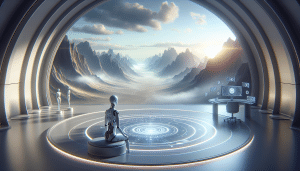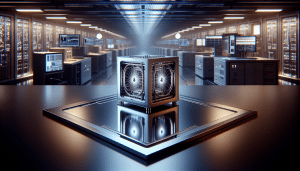The Surprising Impact of AI on Daily Life
Oliver Cooper September 1, 2025
Artificial intelligence affects daily routines in ways many people don’t realize. Explore the subtle influence of machine learning, smart devices, and automation on everything from healthcare to entertainment in this guide to technology’s evolving role.
Machine Learning Behind Everyday Routines
Machine learning now shapes daily life in ways most people barely notice. From unlocking phones with facial recognition to enjoying curated playlists on Spotify or Netflix, algorithms constantly analyze massive data sets to produce results in real time. Because personalization and speed lie at the heart of these tools, individuals experience smoother, more intuitive interactions. As people move through their routines, systems record preferences and adapt to them. Consequently, each use makes the service better, creating a cycle of convenience and continual improvement (Source: NIST).
In addition, AI extends far beyond media platforms. Online shopping, for instance, relies heavily on recommendation engines that highlight products based on browsing history and previous purchases. Cashback offers, payment reminders, and package-tracking notifications also result from machine learning decisions. Over time, these tools become finely attuned to user habits, which minimizes friction and maximizes satisfaction. This constant adaptation reduces cognitive load, allowing users to focus on tasks that matter most.
Moreover, natural language models power chatbots and virtual assistants. These tools handle weather updates, directions, and customer service queries through contextual understanding of language. As models advance, they deliver increasingly accurate responses, creating interactions that feel seamless and almost human. This steady improvement underscores how deeply machine learning has embedded itself into modern routines (Source: IBM).
Smart Devices: Automation in the Modern Home
Smart devices are another visible extension of AI, transforming how households function. Thermostats, for example, adjust temperatures automatically by monitoring occupancy patterns and weather forecasts. As a result, homeowners save both energy and money. Likewise, lighting systems respond to voice commands or follow preset schedules, offering convenience and enhanced security without constant oversight. The rise of smart plugs, cameras, and connected appliances means many actions once requiring attention now happen in the background. Because these devices rely on sensors, connectivity, and user data, they anticipate needs and simplify repetitive tasks (Source: DOE).
Furthermore, integration within smart home ecosystems amplifies their usefulness. A single motion sensor, for instance, can activate lights, engage security features, and send alerts to a phone no matter where the owner is located. Similarly, everyday routines like brewing coffee, adjusting blinds, or even feeding pets can be programmed and controlled remotely. Therefore, smart devices not only save time but also support lifestyles where comfort, safety, and efficiency are priorities.
These innovations also make a tangible difference for people with mobility challenges. Voice-controlled speakers, smart locks, and connected health systems grant independence while reducing reliance on caregivers. For seniors, integration between medical alert systems and home automation platforms provides added peace of mind and safety (Source: AARP).
AI in Healthcare: More Than Diagnosis
Artificial intelligence is reshaping healthcare well beyond diagnostic imaging. Predictive analytics, for example, detect subtle patterns in patient data that clinicians might overlook. Hospitals use these insights to anticipate surgical complications, predict medication side effects, and personalize preventive care. At the same time, machine learning streamlines hospital operations—scheduling, inventory management, and record-keeping—freeing up resources for direct patient interaction (Source: NIH).
Personal health technology now relies on AI as well. Wearables track heart rhythms, sleep cycles, and activity levels, transmitting data to doctors who can intervene early. Meanwhile, AI-driven chatbots manage patient inquiries, book appointments, and monitor symptoms. As a result, access to healthcare becomes easier and more efficient, particularly for people in underserved areas.
Even drug discovery has been revolutionized. Algorithms simulate thousands of chemical interactions, enabling researchers to narrow down promising candidates faster. By pooling global clinical trial data, AI accelerates research timelines and expands treatment possibilities for complex diseases (Source: FDA).
The Future of Work: Automation and Human Skills
Workplaces worldwide are changing as automation replaces repetitive tasks. Robots and AI systems now handle functions like scheduling, document analysis, and trend forecasting. Because machines excel at predictable processes, people can devote more energy to roles that require creativity, empathy, and strategy (Source: Brookings).
In addition, hiring practices increasingly depend on AI. Algorithms filter resumes, match skills, and sometimes conduct initial interviews. Although concerns about fairness and bias persist, developers and policymakers continue refining these systems to improve transparency. At the same time, companies invest in upskilling initiatives, offering digital literacy and STEM training so employees remain adaptable.
Remote and hybrid work also benefit from AI-powered collaboration. Automated meeting transcriptions, live translations, and real-time scheduling tools support teams spread across geographies. Consequently, adaptability and lifelong learning are now essential skills for navigating the evolving workplace.
Entertainment, Creativity, and Artificial Intelligence
Entertainment is undergoing its own transformation. Recommendation engines personalize streaming playlists and movie suggestions, while AI tools enhance video editing, color correction, and closed captioning. In some cases, AI even composes music or generates art, creating new opportunities for collaboration between humans and machines (Source: PCMag).
Gaming also benefits. Smarter algorithms make non-player characters more lifelike and challenging, while procedural generation creates endless environments and puzzles. This innovation keeps gameplay engaging, unpredictable, and mentally stimulating.
Meanwhile, social media depends heavily on AI. Algorithms moderate harmful content, suggest hashtags, and connect users with like-minded communities. Because of these features, platforms feel more personalized and, ideally, safer (Source: MIT Tech Review).
Looking Ahead: Ethical and Societal Questions
Despite the benefits, AI raises pressing ethical questions. Rapid innovation often outpaces regulation, leaving gaps around privacy, consent, and accountability (Source: MIT Tech Review).
Equally concerning, algorithmic bias can reinforce historical inequalities embedded in training data. Consequently, developers and policymakers collaborate on fairness frameworks and responsible development practices. Open-source datasets and transparent guidelines help build trust in AI outcomes.
Finally, public education plays a crucial role. Workshops, online courses, and community initiatives equip people with knowledge to evaluate AI critically. Through collective effort, society can guide AI’s evolution so it aligns with shared values and contributes to human well-being.
References
1. National Institute of Standards and Technology. (n.d.). Artificial Intelligence. Retrieved from https://www.nist.gov/artificial-intelligence
2. IBM Research. (2023). Natural Language Processing Facts. Retrieved from https://www.ibm.com/blogs/research/2023/02/natural-language-processing-facts/
3. U.S. Department of Energy. (n.d.). Connected Devices and Energy Efficiency. Retrieved from https://energy.gov/eere/buildings/articles/connected-devices-energy-efficiency
4. National Institutes of Health. (n.d.). Artificial Intelligence in Health Care. Retrieved from https://www.nih.gov/news-events/nih-research-matters/artificial-intelligence-health-care
5. Brookings Institution. (2019). What jobs are affected by AI? Retrieved from https://www.brookings.edu/articles/what-jobs-are-affected-by-ai-better-paid-better-educated-workers-face-the-most-exposure/
6. MIT Technology Review. (2019). AI ethics guidelines around the world. Retrieved from https://www.technologyreview.com/2019/11/20/238128/ai-ethics-guidelines-europe-us-china/







